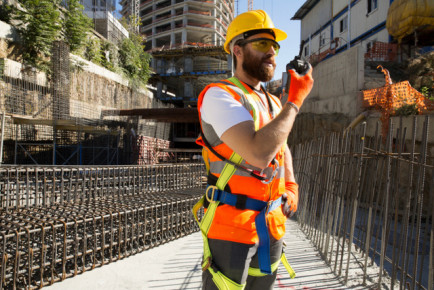
Lone Star will look to build 3,250 new homes in Spain this year.
Those big, hulking Wall Street investment firms do not make hefty investment decisions lightly.
So it should be taken as excellent news indeed that Lone Star Funds – which first invested in the Spanish construction sector in 2015 – has pledged to ramp up the scale of house building in Spain over the course of the next few years…
Having built 2,000 new homes in 2016, the private equity-backed investment firm is eyeing more than 3,200 new homes a year between now and 2020 in a move that speaks volumes of Spain’s maturing property market.
Between 2009 and last year, bank lending to Spain’s real estate industry fell by 65%. This altered the landscape of the nation’s construction industry to the point where private backing was all but required in order to finance any large-scale construction projects.
For many Spanish developers, this meant they have had to sit it out and wait for more bank or government funds. But these US firms are a completely different beast, analysts say.
“Lone Star’s model is typically Anglo-Saxon,” said Fernando Rodríguez, general director of R.R. de Acuña & Asociados, a real estate firm based in Madrid. “They do their research in minute detail and don’t build unless it’s clear there’s demand today, tomorrow, and in two years.
“It’s what the sector needed and it’s nothing like Spanish developers that used to build whatever, wherever and however many homes they wanted.”
New homes built in Spain numbered 675,000 a year between 1997 and 2006, leading to some 1.4 million properties lying empty during the height of the crash. Many of these homes have now been sold, but a large proportion are likely to remain unsellable, having been built in planned towns or urbanisations that have never materialised. In 2015, just 39,890 new homes were built in Spain.
However, in the country’s more popular regions – the Costa del Sol, Madrid and Barcelona – there is now an acute shortfall of new properties, with demand outstripping supply. Lone Star’s involvement and desire to build a limited number of homes in select areas shows that the company has done its homework, market analysts say.
The wider property market of Spain – including resale properties – grew by more than 13% last year, and similar double-digit growth is expected in 2017 as the market returns to “normal” levels not seen since before the boom years of 2007-8.
 en
en



 Vlaams-Nederlands
Vlaams-Nederlands
0 Comments
Leave a Comment
DISCLAIMER
The opinions and comments expressed by contributors to this Blog are theirs alone and do not necessarily reflect the views of VIVA Homes Under the Sun Ltd, any of its associated companies, or employees; nor is VIVA to be held responsible or accountable for the accuracy of any of the information supplied.
Have you got something to say?